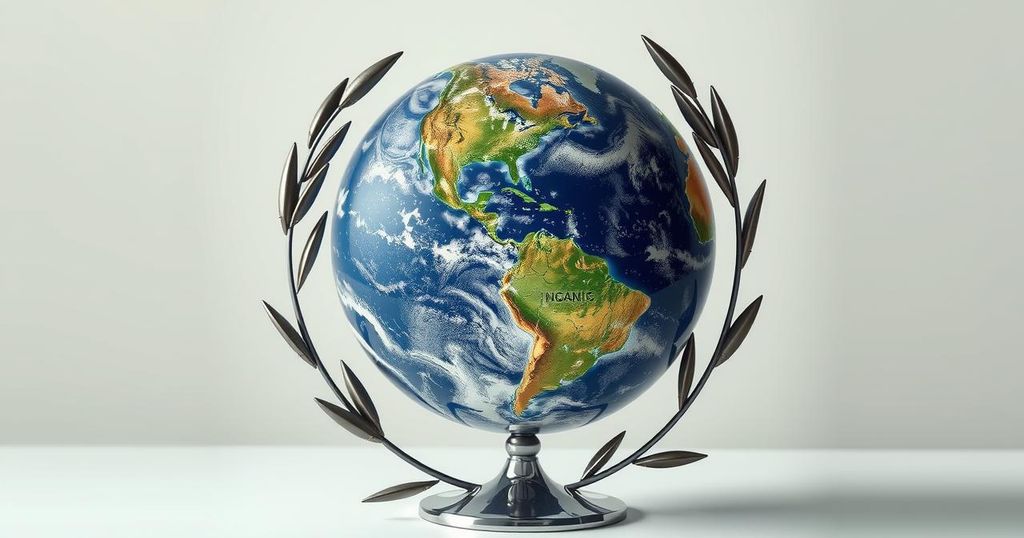President Trump has re-designated the Houthis as a Foreign Terrorist Organization (FTO), citing threats they pose to regional security and maritime trade. This decision may hinder humanitarian efforts in Yemen, where millions require assistance due to ongoing conflict. It follows a decade-long civil war exacerbated by Houthi control and foreign interventions, with widespread implications for peace and stability in the region.
On November 2023, President Donald Trump re-designated Yemen’s Houthi movement as a Foreign Terrorist Organization (FTO). An executive order emphasized that the activities of the Houthis pose a significant threat to American civilians and personnel in the Middle East, jeopardizing regional stability and global maritime trade. This re-designation restricts the US Agency for International Development (USAID) in its dealings with partners who have financial ties to the Houthis or have criticized actions taken against them, potentially hindering humanitarian efforts in Yemen.
The Houthis have been involved in a severe civil conflict that commenced ten years ago after they took control of northern Yemen from the recognized government, prompting intervention by a Saudi-led coalition. The ongoing violence has resulted in a catastrophic humanitarian crisis, claiming over 150,000 lives and displacing millions. This crisis has led to half of Yemen’s population requiring some form of assistance. In January, President Biden had previously classified the Houthis as Specially Designated Global Terrorists (SDGT) due to their attacks on global shipping and Israel, less severe than the FTO designation.
Since the escalation of conflict in late 2023, the Houthis have targeted numerous merchant vessels in the Red Sea and Gulf of Aden using missiles and drones. Their justification for these actions is purportedly in support of Palestinians amid the ongoing conflict between Israel and Hamas. Despite the deployment of Western naval forces and airstrikes by the US and UK against Houthi military targets, their aggressive maritime operations have continued unabated.
Israel has also conducted airstrikes against Houthi positions in Yemen since July, in response to missile and drone threats. The SDGT designation imposed restrictions on financial institutions that necessitated freezing Houthi funds, while the new FTO designation enhances legal ramifications for any individuals providing support to the Houthis, introducing potential criminal prosecution under US law.
Humanitarian organizations have expressed concern that the FTO designation could further restrict their operations in Houthi-controlled regions, where a substantial portion of Yemen’s population resides. A delay in the official response from the Houthi leadership followed Trump’s announcement, but an official from the Houthi-controlled media organization warned of possible escalations if the action adversely impacts the Yemeni populace. The chair of Yemen’s presidential council has lauded the designation as essential for accountability and a stride toward achieving peace in the region.
The Houthis constituted a significant political and military force in Yemen, gaining control over substantial territories and leading to a protracted civil war that began ten years ago. The US involvement has largely stemmed from geopolitical interests in a region crucial for maritime trade and stability. As humanitarian crises deepened, contrasting responses from consecutive US administrations revealed the complex balance between security concerns and the urgency for humanitarian assistance. The Houthis’ designation as terrorists reflects the United States’ perspective on threats posed by Iran-backed factions in the region and their indirect impacts on global security.
In summary, President Trump’s re-designation of the Houthis as a Foreign Terrorist Organization underscores heightened security concerns regarding their activities in the Middle East and global maritime routes. The implications of this decision extend to humanitarian efforts in Yemen, prompting discourse on balancing counter-terrorism actions with the dire humanitarian situation. Meanwhile, regional leaders continue to weigh the consequences of such designations on prospects for peace and stability in Yemen and the surrounding areas.
Original Source: www.bbc.com






